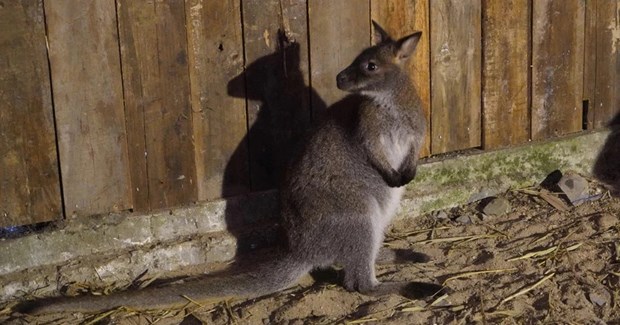 Society
Society

 |
| A wallaby under care at the Hoàng Liên centre for wildlife rescue, conservation and development. — Photo from the Australian Embassy in Việt Nam |
HÀ NỘI — Representatives from the Australian Embassy in Việt Nam recently visited the Hoàng Liên centre for wildlife rescue, conservation and development in the northern mountainous province of Lào Cai to work on the care for suspectedly smuggled wallabies.
The first wallaby was discovered in nature and caught by residents in Đức Long commune of Thạch An district in the northern mountainous province of Cao Bằng, on November 8, 2023. Two more were found by local police and people the next day, and another on November 11.
The animals later were sent to the Hoàng Liên centre for wildlife rescue, conservation and development of the Hoàng Liên National Park for care in a semi-natural habitat.
However, two of the wallabies died due to the stress caused by the long distance between Cao Bằng and Lào Cai, the cold in winter, and illness. The two remainders are adapting well to the new environment, said veterinarian Trần Thu Nga, who is caring for the macropods.
The Australian Embassy said on January 26 that visiting the centre, its representatives presented VNĐ80 million (over US$3,200) in financial aid to help the centre continue caring for the wallabies.
At the meeting, Director of the Hoàng Liên centre Lã Văn Tơi said Việt Nam is a hot spot of wildlife trafficking, and that the wallabies are the first and only foreign-origin animals at the centre.
He expressed his hope that the embassy will help the centre connect with animal rescue organisations, experts, and volunteers to better care for the plants and animals here, including the wallabies.
Local authorities noted there are no wallabies in nature in Vietnam, so the animals could have been abandoned when smugglers were uncovered by forest rangers.
Wild animals endemic to Australia can only be exported for non-commercial purposes like exhibiting at zoos. Any individual and organisation accused of committing illegal wildlife trade will be investigated and fined or imprisoned if found guilty, according to the Wildlife Trade Office of Australia’s Department of Agriculture, Water and the Environment. — VNA/VNS




